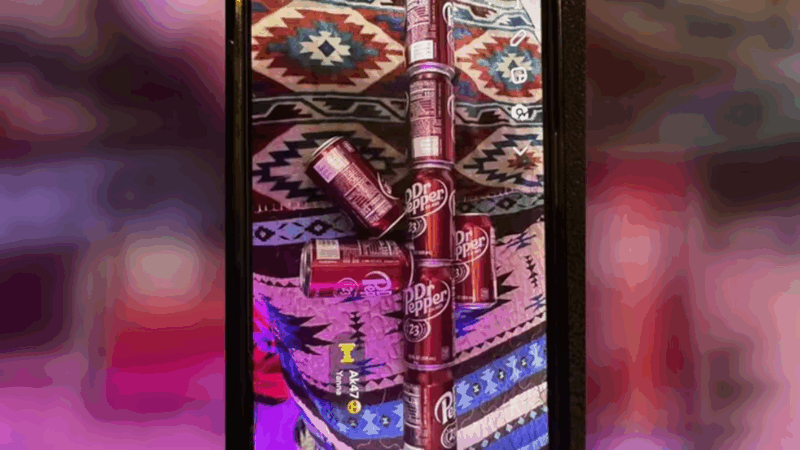Missouri 13-Year-Old Suspended for Making a Rifle Out of Dr. Pepper Cans
The boy and his mother are now suing the school district and its officials to protect students' right to free expression.

A 13-year-old Missouri middle school student was suspended for sharing a photo of his weekend art project on his private Snapchat account. The student, W.G., and his mother Riley Grunden are now suing the school district, principal, and superintendent for violating W.G.'s constitutionally protected First Amendment right to creative expression and for labeling him a "cyberbully" on his permanent record.
While at home after school on September 14, 2024, W.G. took a photo on his personal electronic device of Dr. Pepper cans assembled into the shape of a rifle to mimic a social media trend of "can art," according to the lawsuit filed by Goldwater Institute's American Freedom Network. He then posted the photo on his personal Snapchat story to share with his friends. The post was accompanied by a trending audio file, titled "Ak47," which includes a voiceover saying, "This is the famous AK47, with over 50 million manufactured in ten countries, the AK47 is the most popular assault rifle in the world."
The following day, W.G.'s mother received a phone call from W.G.'s school principal, who informed her that another parent had reported the Snapchat post and that W.G. would be subject to a search before entering the school premises the next day. The day after the search, Grunden met with the principal, superintendent, and school resource officer, where she and W.G. were told that, even though the superintendent had found "no credible evidence of any danger," the Snapchat post had "brought fear to other students" and could be interpreted as a "terrorist threat." As a result, W.G. would receive three days of out-of-school suspension for cyberbullying. Before this incident, W.G. had no history of bullying or cyberbullying. Now, Grunden is suing on behalf of her son's free expression rights.
Although adolescent social media and internet use is one of today's hot topics, the Supreme Court has made it clear that schools do not have the right to punish students for constitutionally protected speech that has no connection to school safety.
The Court's 2021 Mahanoy Area School District v. B.L. opinion reiterated schools' limited ability to regulate off-campus speech only when speech materially disrupts the educational environment, and hedged against the temptation to censor all off-campus speech. Rather, the Court warned that "courts must be more skeptical of a school's efforts to regulate off-campus speech, for doing so may mean the student cannot engage in that kind of speech at all." Additionally, in the 2023 Counterman v. Colorado opinion, the Court established that speech could only be punished as a "true threat" if the speaker anticipated that the expression would be perceived as threatening.
W.G. created and posted his Dr. Pepper can rifle off-campus, after school hours, and through his personal device and internet connection. There was no mention or connection to his school, and there was no intention or anticipation that the Snapchat post would be perceived as threatening. Since his post, W.G. has become the focal point of rumors alleging that he threatened violence against the school, and the incident has been documented in his permanent record as cyberbullying. In their attempt to protect the "safety and well-being" of the students, school officials may have increased the students' perception of threatened school violence.
School violence does exist, and credible threats should be taken seriously. Spending time and resources to punish a 13-year-old's home art project does not make schools safer. Instead, it distracts parents and school officials from identifying and acting accordingly to threats that actually exist.


Show Comments (39)